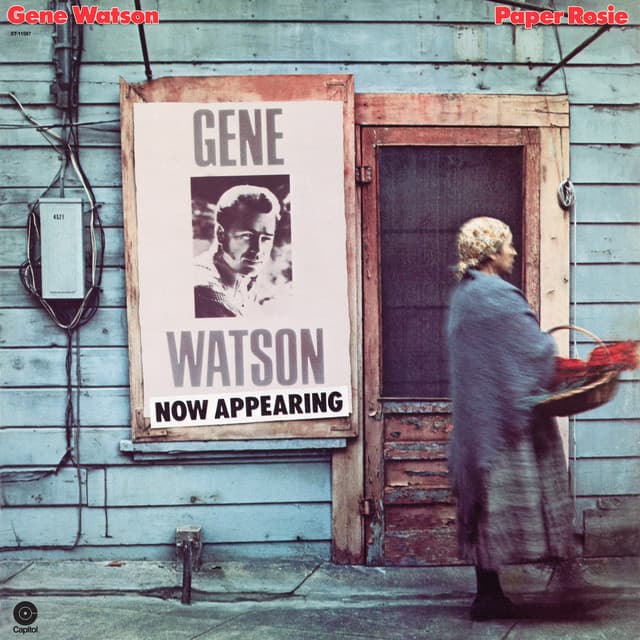
“Paper Rosie”: A Tender Tale of Empathy and Fleeting Encounters
There are certain songs that, with just a few opening notes, transport you back to a specific time and feeling. For many of us who grew up with traditional country music, Gene Watson’s voice possesses that uncanny ability. His songs are often steeped in the kind of genuine emotion and relatable storytelling that truly resonates. Tonight, let’s step back into the rich tapestry of the late 1970s and revisit a tender, poignant classic that touched countless hearts: “Paper Rosie.”
Released in January 1977, “Paper Rosie” was the lead single and title track from Gene Watson’s acclaimed album, also named Paper Rosie. This song wasn’t just a quiet success; it was a significant hit that solidified Watson’s reputation as a masterful interpreter of country ballads. It climbed to an impressive number 3 on the Billboard Hot Country Singles chart in the spring of 1977, holding that position for three weeks and remaining on the chart for a remarkable 17 weeks. Across the border, in Canada, it achieved even greater success, topping the RPM Country Tracks chart at number 1. Its enduring popularity also saw it featured in the 1990 film Another 48 Hours, proving its lasting appeal beyond the country music faithful.
The story behind “Paper Rosie” is as delicate and evocative as the flower it describes. The song was originally written and recorded by Canadian country artist Dallas Harms in 1975, but it was Gene Watson‘s rendition that truly brought it to widespread prominence. The narrative unfolds in a roadside tavern, told from the perspective of a patron who observes an elderly, silver-haired woman quietly selling handcrafted paper roses for a meager dime. There’s a subtle, almost ethereal quality to the encounter, a quiet transaction that hints at something deeper. The narrator, moved by a mixture of kindness and curiosity, purchases a rose. It’s a simple act, yet it sets the stage for a profound realization.
The true meaning of “Paper Rosie” lies in its poignant exploration of human connection, compassion, and the subtle, often overlooked, signs of life’s fragile journey. As the song progresses, the narrator discovers that the elderly woman’s funeral is taking place right next door, at the very same time she was selling her humble paper flowers. This revelation casts the entire encounter in a new, melancholic light. The paper rose, initially just a trinket, transforms into a symbol of resilience, a silent testament to a life lived, perhaps struggling, but still offering a small piece of beauty to the world. It’s a bittersweet reminder that even in the most mundane settings, profound moments can unfold, and that human dignity often shines brightest in the face of quiet adversity.
Gene Watson‘s delivery of “Paper Rosie” is nothing short of masterful. His voice, steeped in genuine emotion and a touch of world-weariness, perfectly conveys the song’s tender sorrow and empathetic reflection. He doesn’t just sing the words; he embodies the narrator’s quiet contemplation and the subtle ache of understanding that comes with the unexpected truth. The steel guitar cries softly in the background, the fiddle weaves its gentle melody, all contributing to an atmosphere that is both intimate and deeply moving. It’s a hallmark of the traditional country sound that Watson has always championed – music that speaks directly to the heart, without artifice or pretense.
For those of us who remember hearing “Paper Rosie” on the radio waves, perhaps while driving down a quiet country road or simply sitting on a porch, it stirred something within. It wasn’t a loud, boisterous hit, but rather a gentle whisper that commanded attention. It taught us about looking beyond the surface, about the quiet struggles of others, and about the unexpected beauty found in everyday encounters. The song serves as a powerful reminder that every person has a story, and that even the smallest act of kindness can carry profound meaning. It’s a timeless piece of country music, a delicate flower of a song that continues to bloom in our memories, reminding us of the enduring power of empathy and the quiet, often overlooked, beauty of a simple “paper rosie.”